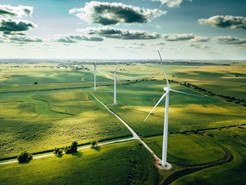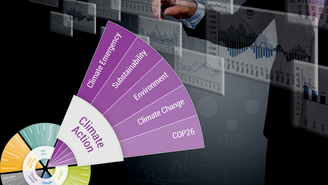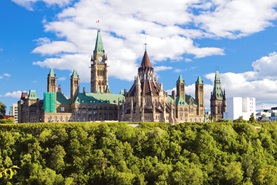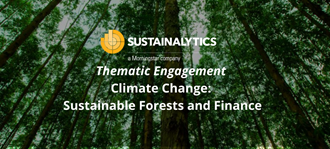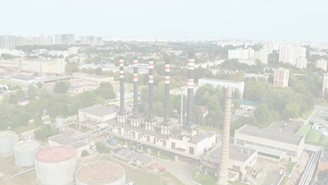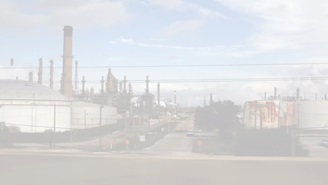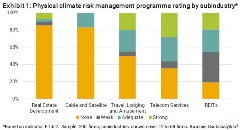5 Sustainability Themes to Expect in 2022
As we enter 2022, it struck me that VUCA--a concept that originated in the mid-1980s at the U.S. Army War College to describe the volatility, uncertainty, complexity, and ambiguity of the world after the Cold War—is still a useful framework to think of where we are now.
For Investors with Ambitions to Lead on Climate Action Post COP26
In the weeks following COP26, investors in the UK and worldwide face a myriad of upcoming climate-related regulations heading towards the implementation phase. In addition, major global coalitions such as the Glasgow Financial Alliance for Net Zero have sprung up to attempt to accelerate decarbonization via targeted investment.
COP 26: A Spotlight on Emerging Climate Action Themes for Investors
Reactions to the COP26 Conference and the resulting Glasgow Climate Pact have predictably run the gamut from claims of greenwashing to the celebration of progress in the fight against climate change. Ultimately, any judgement on COP26 may be premature, as the success of the conference will best be measured in time by the extent to which commitments made are put into motion. While we wait to see the concrete actions that materialize, the past two weeks have underscored the importance of several themes that will garner increasing attention and should be considered by sustainable investors.
Impact of Climate Change and Extreme Weather on Essential Services
Utilities have found themselves in the literal and metaphorical eye of the storm over the last year as hurricanes, floods and wildfires of increasing frequency and strength have wreaked damage on their assets. In late August, Storm Ida made landfall in Louisiana, USA and devastated the power grid lines. Entergy, the utility operating in Louisiana, supplying most of New Orleans, restored 90% of the supply only by mid-September, with 87,000 customers still without power.
Recent market trends put engagement and voting front and centre for responsible investors
From a market perspective, engagement and voting on governance issues have been used as levers for influence for a long time. On the other hand, environmental and social issues were historically addressed from a values-based perspective or primarily for fact-finding purposes. Today, many responsible investors leverage corporate dialogue as a tool to influence and drive meaningful change and impact
The Mutual Influence of Investors and Government
On issues from voting rights to climate change, the relationship between investors, companies, and governments has never been more dynamic. This has spurred a lively discussion about the impact and appropriate role of these actors in addressing systemic environmental and social issues. An increasingly cited view is that commitments made by businesses and investors are often superficial, and at best, can provide only incremental progress towards addressing the problems we face. Some go further to suggest that sustainable investing has done more harm than good, with the notion that these efforts have provided a false sense of progress and have delayed meaningful government action. This is a worthwhile debate, but my experience over the last eight years in the sustainable investing space has given me a very different perspective.
What Climate Litigation Means for the Oil & Gas Industry
As the global economy looks towards recovery after being impacted by the pandemic, the oil and gas industry faces a growing wave of shareholder activism and climate litigation due to a heightened focus on an accelerated transition as an indirect impact of the pandemic – painting an increasingly bleak picture for those within the industry.
Royal Dutch Shell Court Order Shifts Paradigm for Corporate ESG Accountability
On 26 May 2021, the Court of The Hague orders Royal Dutch Shell (RDS) to reduce CO2 emissions to a net 45% by the end of 2030 compared to 2019 through the Group Policy of the Shell Group. The order of a national (Dutch) court demands that a global company (RDS) fulfills its obligations under the Paris Climate Agreement, although RDS was not a party in that agreement, and there is no legal equivalent in The Netherlands. What are the broader consequences of this order, also globally and for other companies and potentially also other jurisdictions?
Unwritten Risks – The True Costs of Mispriced Climate Change
Research shows that Property & Casualty insurance underwriters are not accurately pricing climate risks, and US government policy and program decisions are proving to be unsustainable. In our most recent blog, Justin Cheng talks about the resulting premium pricing corrections in the wake of intensifying extreme weather events. With this trend, a significant number of US homeowners are unable to obtain property insurance while taxpayers take on the increased cost of climate risk.
Bringing Investors and Companies Together to Address the Climate Change Crisis
As Earth Day is around the corner on the 22nd of April, the Biden Administration is to convene a global climate summit. Following a historical precedent for several such events, since its inception in 1970, including signing the landmark Paris Agreement . We have seen positive developments since the Paris Agreement; societal actions to address some of the root causes of climate change have yet to suppress the negative trends . Historically, active ownership on climate change has focused on direct emissions from highly exposed sectors, such as fossil fuel and utility companies. However, the more complicated, less direct aspects of climate change have seen limited progress. Tackling such issues will see a strong need for collaboration from both countries and other key sectors, in particular, banking and finance. Banks are key to support this transformation; facilitating economic activity for positive change throughout the entire value chain is key.
A Political Pivot for Climate Change and the American Coal Industry
As the Biden administration moves into the White House this week, the world is waiting to see if a promising focus on climate change along with a Democratic Congress will present plausible opportunities to cut carbon emissions. While the outgoing administration backed initiatives supporting coal energy[1], it doesn’t appear to have slowed industry decline.
Is Natural Gas a Cleaner Energy Solution?
While Oil and Gas (O&G) operations are responsible for roughly 15 percent of global energy-related GHG emissions, some energy companies have pledged the role of natural gas (NG) as a transitional fuel. At the same time, NG energy use is increasing globally, and shale-gas extraction is booming at an unprecedented rate. One factor that is often overlooked is the methane emissions across the NG value chain.
How Climate Gentrification is Increasing Real Estate Costs and Socio-economic Disparities
Climate gentrification is an emerging concept describing how land with greater resiliency against intensifying physical impacts of climate change becomes more desirable and valuable.[1] It catalyzes fast and visible socio-economic transformation in communities.
Regulatory Standards and COVID-19: Is Oil and Gas Being Given a Hall Pass on ESG?
Globally, oil and gas companies are weathering a storm like no other in their history. Although volatility seems to have settled somewhat since the early months of 2020 (when the Russia-Saudi Arabia oil price war experienced its most heated moments yet), cost-cutting and debt borrowing continues to plague the industry as the vast majority of COVID-19 related restrictions remain in place worldwide.
The Race to Net Zero: Decarbonization Commitments in the Oil & Gas Industry
Recent reports concerning record decreases in global greenhouse gas (GHG) emissions due to the COVID-19 pandemic have spurred hope for a “green shift” in our global economy, post-pandemic. The importance of this shift cannot be understated, given that capital investments made within the next five-to-ten years will determine the world’s carbon pathway to 2050 and beyond.
Airlines Post-COVID-19: The Challenges to a Climate-Friendly Recovery
Planes grounded, borders closed and passengers staying at home: the past months haven’t been easy for the airline industry. COVID-19 has led to the deepest crisis ever in the history of the sector.[i] Airlines are in dire need of cash to recover, while at the same time the industry is also expected to adapt and prepare itself for the more critical crisis ahead that is climate change. Despite the slowdown of air travel, long term prospects of mitigating carbon footprint of the industry are not clear. Carbon commitments supported by comprehensive programs are in place, nonetheless, our research suggests that existing measures may not be sufficient to curve down emissions and mitigate climate change.

